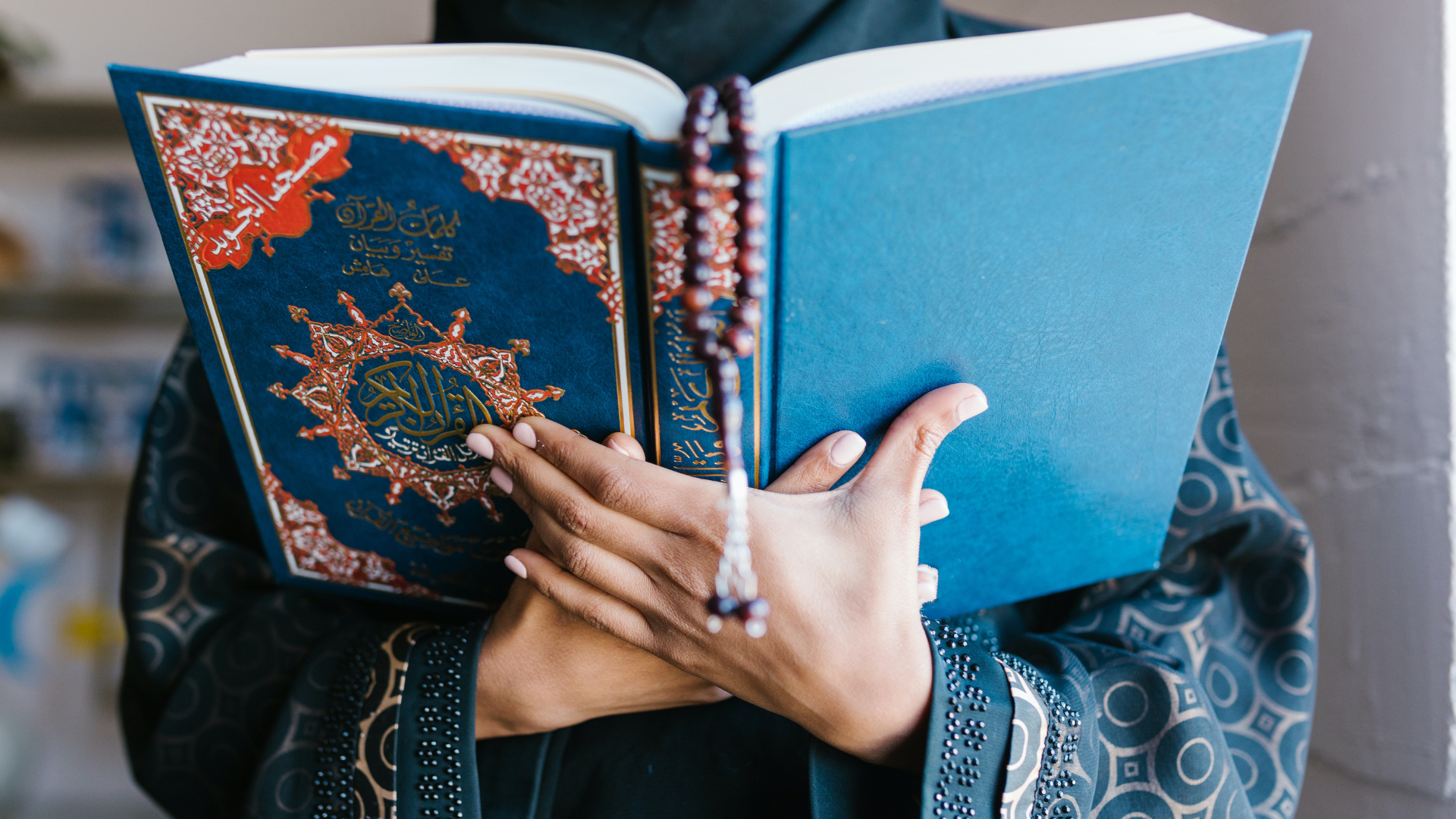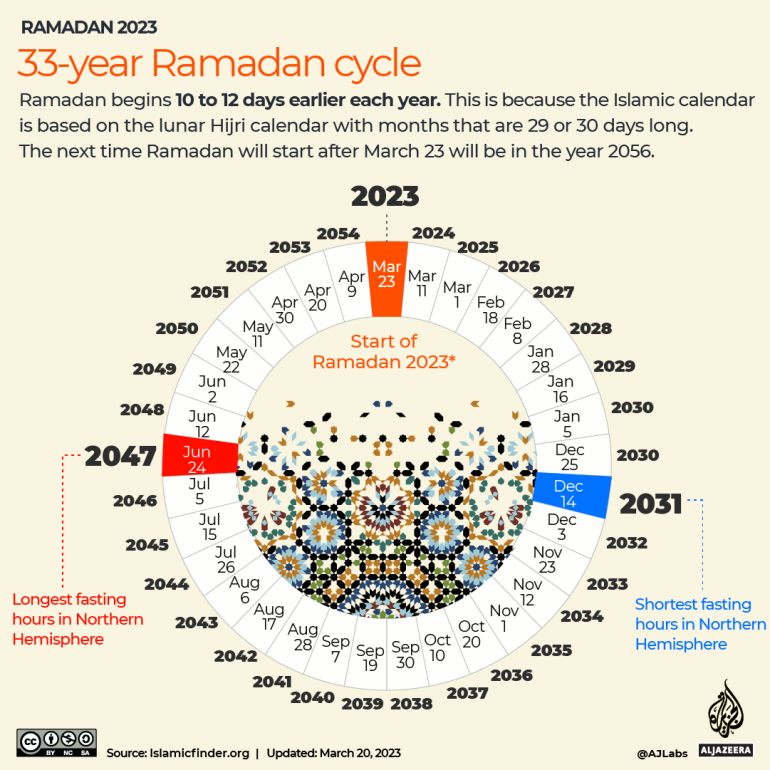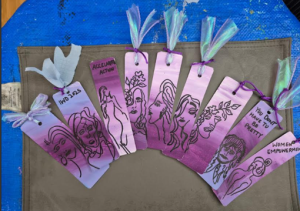March 23rd, was the first day of Ramadan, the month of fasting for Muslims across the World. Fasting is one of the five pillars, or core parts, of Islam. Ramadan holds a special place in the hearts of Muslims. A child or young person’s first fast is a significant event in their life.
Ramadan is the ninth month of the Islamic calendar. As well as fasting, it is known as the month of the Qur’an, giving charity, and drawing closer to Allah (God). Muslims follow the Islamic calendar when it comes to religious festivals and events. Muslims mark several important months, days, and nights throughout the year. Ramadan is welcomed and celebrated like no other month.
The Islamic year is based on a lunar calendar consisting of 12 months of 29 or 30 days each. Each month starts with the sighting of the new moon. As the Islamic year is shorter than the Gregorian calendar Islamic events move throughout the year. Ramadan starts between 10 and 12 days earlier each year completing a full cycle every 33 years. This means that during the summer fasts can be as long as 20 hours and during winter as short as 10 hours in Toronto.
Over the next month, Muslims who are able will be fasting every day between dawn and dusk. This means not eating or drinking anything including water during that time. It also means refraining from any actions, words, or behaviours considered to be bad.
The whole month of Ramadan is blessed. The last 10 nights are extra special. That is when people will seek the ‘Night of Power’ which Islamic tradition states was when Allah revealed the Qur’an to the Prophet Muhammad (peace be upon him). During Ramadan, people will reflect on how to lead a better life, increase their individual and communal prayers and worship, spend more time at the mosque, give charity, and try to complete at least one full reading of the Qur’an. They will also seek forgiveness for past actions and ask for Allah’s help to lead better lives in the future. The focus is on cleansing the body and soul, through self-discipline, self-control, making small sacrifices in daily lives, and expressing sympathy and empathy for those who may be less fortunate.
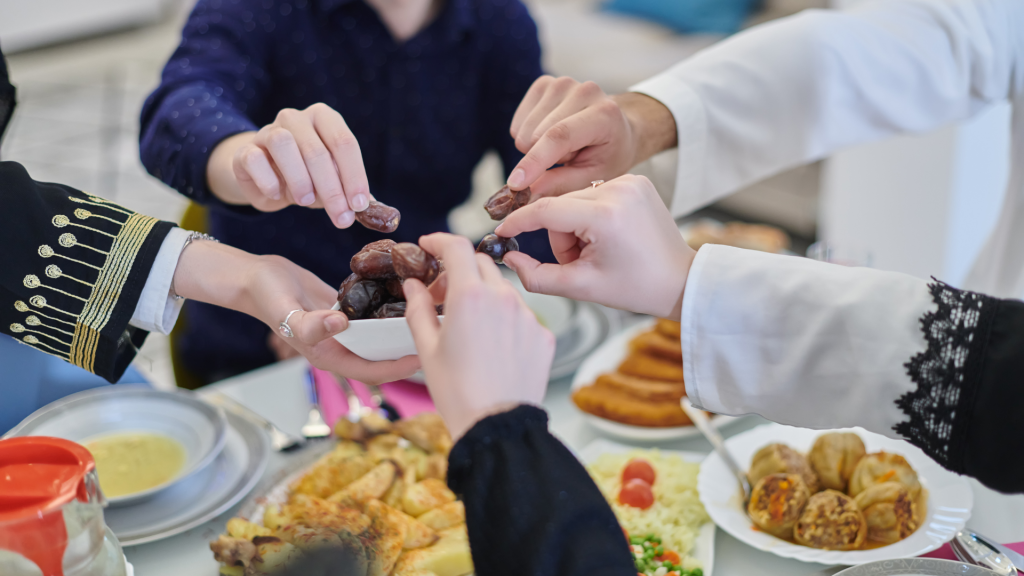
People who are fasting will eat a light, healthy meal before dawn which is known as ’suhur’. They will end the fast at sunset with a meal known as ‘iftar’ often gathering with family and friends at home or in the mosque. Food and drink will also be shared with neighbours and those who may not have much to eat or drink at home.
People will open their fast with dates, water (from the well of Zamzam in Makkah, Saudi Arabia if possible), fruit, and milk. After the ‘iftar’ a special communal prayer called ‘tarawih’ is performed every night during Ramadan in mosques and at people’s homes. The entire Qur’an is completed during ‘tarawih’ prayers.
People who are ill, those who need to travel long distances, pregnant or nursing women, or those who are otherwise unable to fast during Ramadan can make up the fasts missed at another time during the year. Young children are exempt but often many are excited to keep shorter fasts along with other family members.
The end of the month of Ramadan is marked by the sighting of the new moon for the month of Shawwal. The first day of the month is known as Eid al-Fitr or the Festival of Breaking Fast. This year, Eid will be on April 21 or 22. This is a day of celebration where families will attend the mosque to offer special communal prayers, families will gather for a special meal, people will wear their best clothes, exchange gifts, and visit each other.
The attached Ramadan Health Guide may be helpful for agency staff supporting each other and clients Ramadan Health Guide.pdf
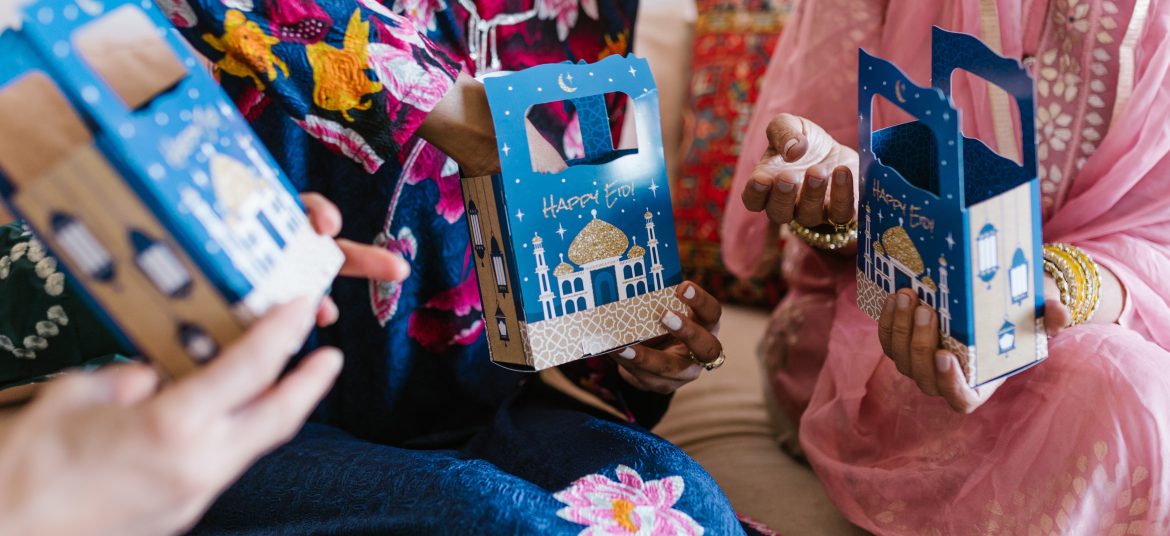
The Islamic Society of Toronto http://islamicsocietyoftoronto.com/ , will usually organize a series of events aimed at families and youth.
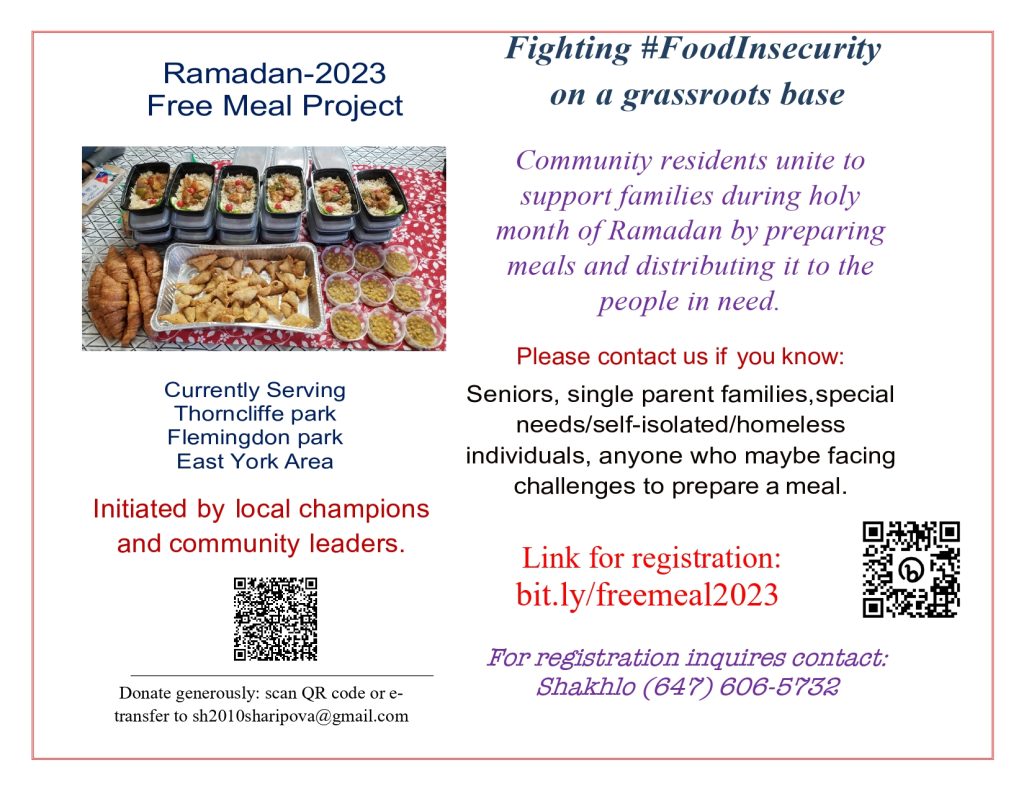
Several of the apartment and condo buildings in Thorncliffe and Flemingdon Parks have dedicated prayer rooms or spaces for residents and will organize similar programs and events.
We are also fortunate to have a group of Thorncliffe Park residents organizing the Ramadan free meal project to help families get a free hot meal twice a week during the month. They accept cash and in-kind donations: fundraising page or via e-transfer to Dr. Shakhlo Sharipova, sh2010sharipova@gmail.com.
In-kind donations can include: rice, oil, vegetables, chicken, dates, snack bars, and fruits. People can also volunteer time to support with the project.

